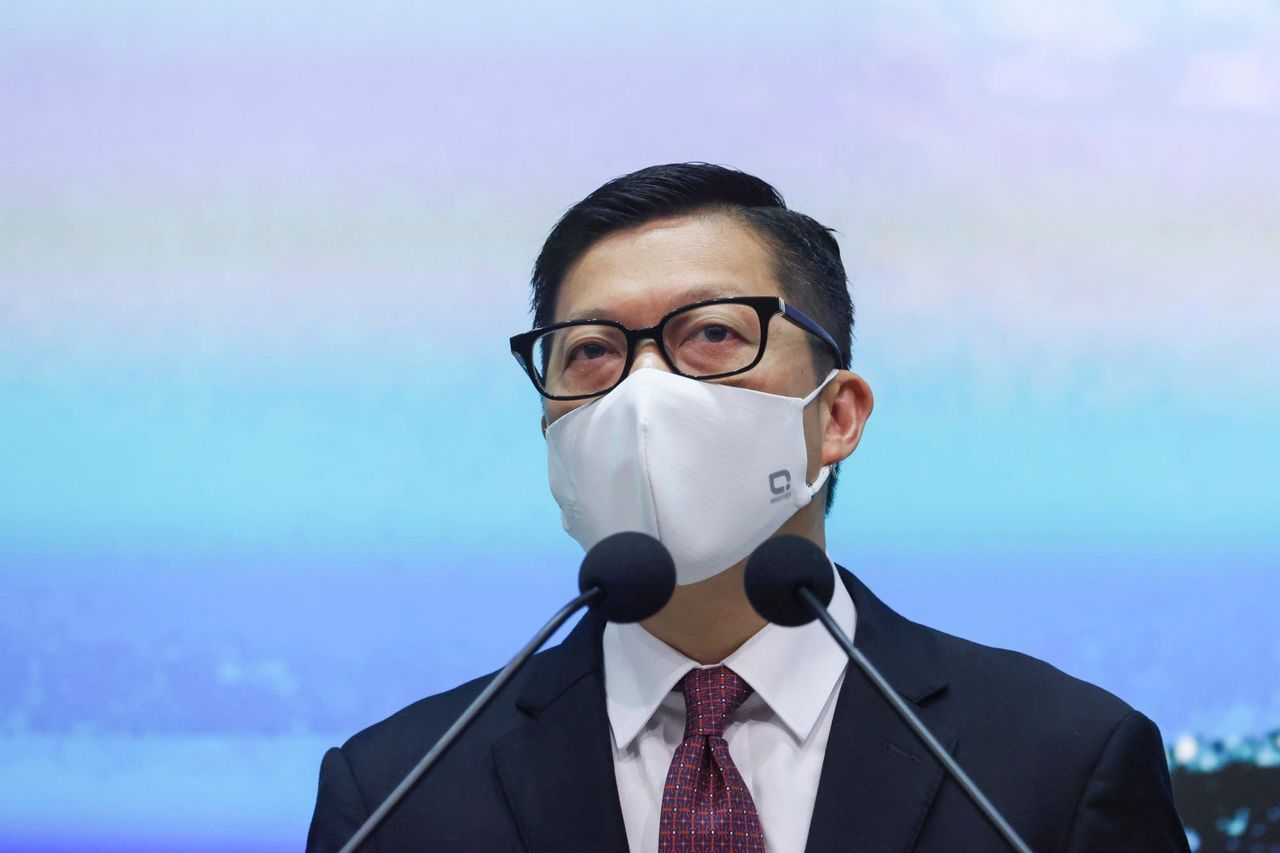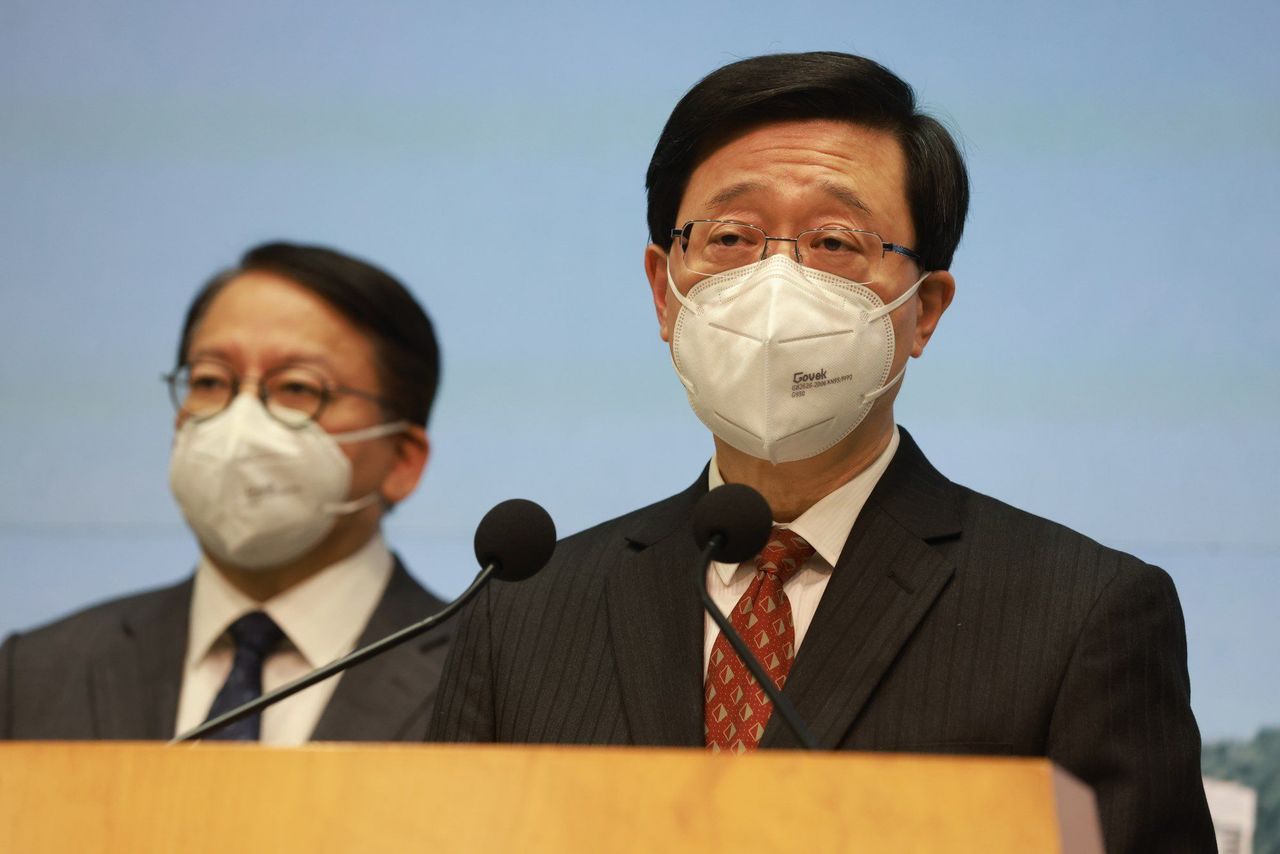Hong Kong News

Hong Kong finance, security chiefs top performers in poll ratings
Hong Kong’s financial secretary and security chief have been graded as “successful” performers among the line-up of new leader John Lee Ka-chiu’s administration, according to a tracking poll by the Public Opinion Research Institute (Pori).
It was the institute’s first survey on the support for government ministers under Lee, with polling conducted between September 5 and 9 involving 1,002 local residents and the findings released on Tuesday.
Finance chief Paul Chan Mo-po had a support rate of 58.4 out of 100, the highest among the three top government secretaries. His rate was 50.3 in the previous poll in early May when he held the same post in Carrie Lam Cheng Yuet-ngor’s administration.
 Secretary for Security Chris Tang.
Secretary for Security Chris Tang.
In the latest poll, Chan also achieved a net approval rate of 39 per cent.
Lee’s right-hand man, Chief Secretary Eric Chan Kwok-ki, achieved a support rate of 46.8 while his net approval was 13 per cent. He was the director of Lam’s office before joining Lee’s team as the city’s No 2 official in July.
The support rate of Secretary of Justice Paul Lam Ting-kwok was 45.9, with a net approval of 12 per cent. This contrasted sharply with the 30.3 support rate for his predecessor, Teresa Cheng Yeuk-wah, whose net approval was minus 32 per cent in the May survey.
Pori asked interviewees to rate the performances of the three secretaries of departments as well as the heads of 15 bureaus. But three newly created posts – deputy chief secretary, deputy financial secretary and deputy justice secretary – were not included.
Among the 15 bureau chiefs, security minister Chris Tang Ping-keung had the highest net approval rate of 25 per cent. Some 53 per cent had confidence in his work, while 28 per cent did not. This was up from the 10 per cent net approval rate he achieved in the last poll when he was also in the same post.
In second place was Secretary for Constitutional and Mainland Affairs Erick Tsang Kwok-wai, whose net approval rate was 22 per cent.
Ranking third jointly in terms of net approval rate were labour chief Chris Sun Yuk-han, commerce minister Algernon Yau Ying-wah, and Secretary for Financial Services and the Treasury Christopher Hui Ching-yu. The trio’s net approval rate was 19 per cent.
 Secretary for Education Christine Choi.
Secretary for Education Christine Choi.
Education minister Christine Choi Yuk-lin had the lowest net approval net of 1 per cent among the principal officials. Her approval rate was 32 per cent, but almost the same proportion of respondents disapproved of her work.
Pori said in a statement that none of the officials fell under the grade of “ideal” performer, defined as those with approval rates over 66 per cent.
Paul Chan and Tang fell under the category of “successful” performers – those achieving approval rates of over 50, according to the Pori grading.
Tsang and Choi were among those graded as “mediocre” performers, according to Pori. Others in the same grade were health secretary Lo Chung-mau, home and youth affairs chief Alice Mak Mei-kuen, and culture, sports and tourism minister Kevin Yeung Yun-hung.
In response to the poll, Choi said she would keep communicating with various stakeholders and tackle the difficult issues in the sector to improve the effectiveness of education and make children’s education better, according to a bureau spokesman.
The latest poll also showed development chief Bernadette Linn Hon-ho, environment and ecology secretary Tse Chin-wan, and transport and logistics minister Lam sai-hung were the three least recognised officials in Lee’s team.
 Chief Executive John Lee (right) with No 2 official Eric Chan.
Chief Executive John Lee (right) with No 2 official Eric Chan.
The trio’s recognition rates were respectively 31 per cent, 33 per cent, and 34 per cent, according to the poll.
Current affairs observer Chan Wai-keung of Polytechnic University said the findings showed the Lee government was still enjoying a honeymoon period with the public.
“The economy has been performing poorly because of Covid-19 and we have not seen any big policies to tackle the recession by Paul Chan. Perhaps he was not pulled into big controversies in recent months and has been given more leeway by the public,” Chan said.
He also said Tang’s high popularity could be because of his “tough man” image and strong execution skills. “After the 2019 social unrest, more people hope to see peace restored and they may prefer a tougher man to take charge of security issues,” he added.
Pori also carries out separate polls on support for the chief executive, in which Lee scored 53.5 out of 100, with a net approval rate of 13 per cent, the highest for a leader since August 2018, in the latest poll findings released on September 20.











